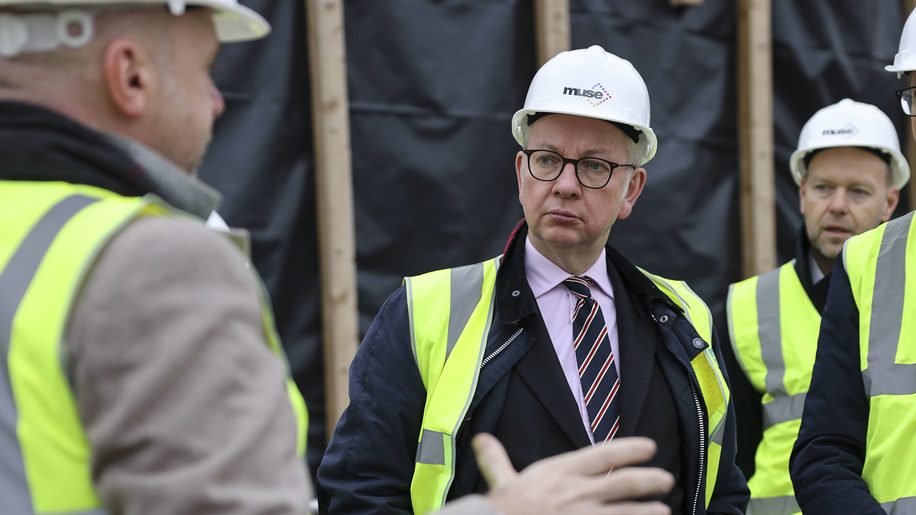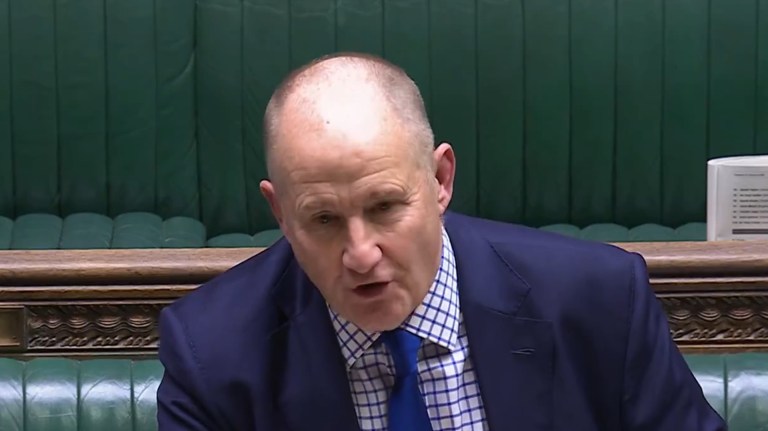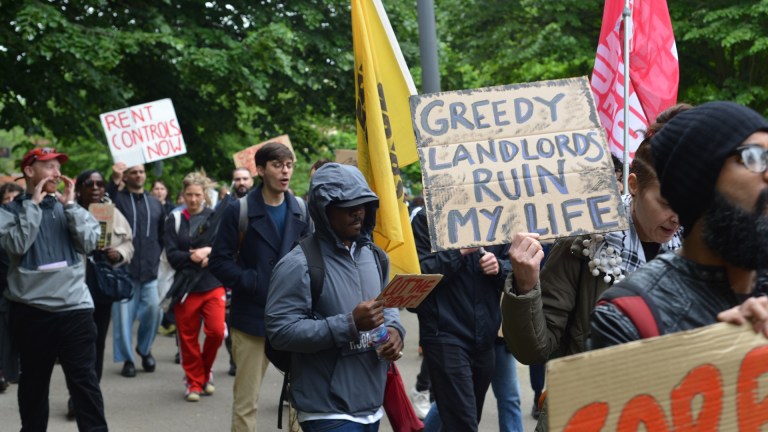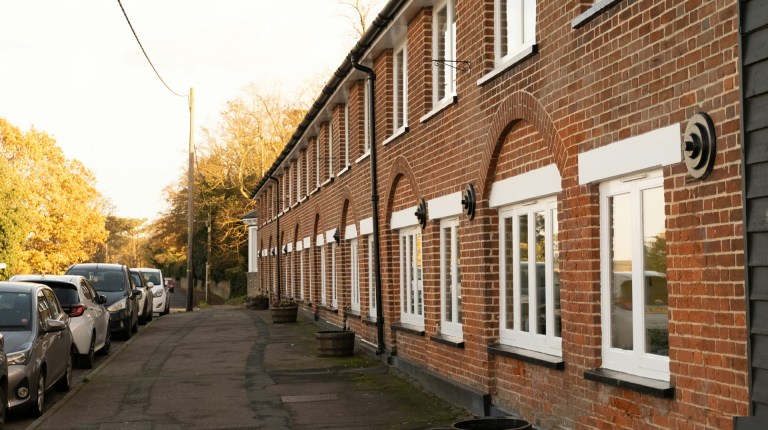Reforming leasehold is not a new idea, nor an unconservative one. Margaret Thatcher famously said “there is no prouder word in history than freeholder”.
In 2017, Theresa May’s manifesto included a promise to “crack down on unfair practices in leasehold, such as escalating ground rents”.
Boris Johnson went further in 2019, running on a manifesto which said: “We will continue with our reforms to leasehold including implementing our ban on the sale of new leasehold homes, restricting ground rents to a peppercorn, and providing necessary mechanisms of redress for tenants.”
Since then, the Law Commission has made more than 300 recommendations to abolish leasehold.
The shape of the reforms became clear when the government introduced the Leasehold and Freehold Reform Bill to the House of Commons in November 2023.
The government is planning to ban new leasehold houses – but has proposed no changes to existing houses, or flats of any kind.
For existing leaseholders, a number of changes were proposed.
Firstly, the new law would make it easier and cheaper to extend your lease, and make the standard extension 990 years. Anybody extending their lease can pay a premium – 0.1% of the freehold value – to reduce ground rent to a nominal “peppercorn” value.
Leaseholders will no longer have to wait two years before benefitting from changes to their lease.
The abolition of marriage value is also planned. As the number of years on a lease runs down, the resale value of the property decreases. But leaseholders who extend their lease must pay the freeholder 50% of the value added by the extension – known as marriage value
For people fighting service charges, there will be increased transparency on fees, and the ability to request information. Leaseholders will also be given the ability to change their managing agent.
In January 2023, housing secretary Michael Gove went even further, saying the government had plans to scrap leasehold altogether by the end of the year.
To put it briefly: the promise to abolish leasehold didn’t happen. There has been controversy as the plans and promises have stuttered upon contact with reality.
As part of the “wash up”, when bills are rushed through to become law after an election is called, the Leasehold and Freehold Reform bill became law on 24 May.
A number of original promises did survive and become reality. These included making the standard leasehold extension 990 years, up from 90 years for flats and 50 years for houses. Leaseholders also will now not need to wait two years before extending their leases.
On service charges, managing agents will now have to issue bills in a “standardised format”, to make it easier for residents to scrutinise and understand the fees. Buildings insurance commissions have been banned, and replaced with “transparent and fair handling fees”
But a number of promises made during the process have not survived, such as a cap on ground rent. Plans to reduce ground rents to a nominal “peppercorn” value became a mooted £250 cap. In the end, neither was part of the final bill.
The manifesto promise of banning new leasehold homes has only partly been achieved – only new leasehold houses will be banned, and even then
Campaigners also wanted “fleecehold” and forfeiture banned. Fleecehold is where homes are sold as freehold, but include service charges in the same way leasehold properties do. Forfeiture involves leaseholders losing their homes for non-payment of small fees. However, a ban on forfeiture was also absent from the final bill
During one debate, Lords accused Gove of “shoddy politics”.
“What we have before us today is a virtually eviscerated shell of the bill,” said Labour’s Baroness Taylor during a debate on the bill.
“I have received many representations from young people whose dreams of home ownership have been shattered when they finally save their deposit and buy a home, only to find that the terms of their lease leave them at best shackled to a regime of unreasonable cost increases, and at worst unable to sell their home because the lease conditions are too onerous,” Taylor added.
A government minister has also admitted any changes are unlikely to come into effect in “2025-26”.
What will Labour do about leasehold if elected?
Labour had promised to abolish leasehold within 100 days of government. Now, they’re not putting a date on it – seen in some quarters as another of Keir Starmer’s abandoned promises. Labour MP Barry Gardiner said his party was “absolutely committed to wholesale leasehold reform in its first term”, but said the specific number of days didn’t matter.
Deputy leader Angela Rayner said: “Labour is committed to comprehensive leasehold reform, enacting the Law Commission’s recommendations on enfranchisement, commonhold and right to manage in full.”
Matthew Pennycook, Labour’s shadow housing secretary, said Labour will “deliver” where the Conservatives have “failed”, adding “ending service charge abuse ultimately requires bringing the feudal leasehold system to an end”.
With the reforms falling short of the government’s initial promises, there have been calls for the plans to go further.
Delays are causing pain to leaseholders, say campaigners. “The delay in leasehold reform is going to cause a lot of financial hardship to households at a time when they are still bearing the increased burden of high inflation,” said Suz Muna of Social Housing Action Campaign, a group which helps leaseholders fight service charges and has gained over 14,000 signatures on a petition to get service charges debated in parliament.
“The big, corporate landlords have sufficient funds in reserves and surpluses to absorb reduced ground rents. Our members do not. It means many more will fall into arrears even after sacrificing other essentials.”
It’s not just campaigners who are pushing the government to go further. Former minister Gavin Williamson wants his party to cap service charge increases, and believes Michael Gove can do so without the need for new legislation.
Harry Scoffin, founder of anti-leasehold campaign group Free Leaseholders, says leaseholders could become single-issue voters at the next election. With many finding themselves “financial hostages” in their own homes, they could punish Rishi Sunak at the ballot box.
“The Leasehold and Freehold Reform Bill does not go far enough. These are not my words, but those of Conservative, Labour and Liberal Democrat parliamentarians. To beef up the bill, government must abolish forfeiture, a gangster-like tool used to extort money from hapless leaseholders,” says Scoffin.
“It must also put rocket boosters under Right to Manage and collective enfranchisement to let more leaseholders take back control of their homes, money and lives. Finally, the government must deliver the 2019 Conservative manifesto pledge to abolish new leasehold homes, including flats. That means mandating share of freehold, if not commonhold, for all future apartments.”









